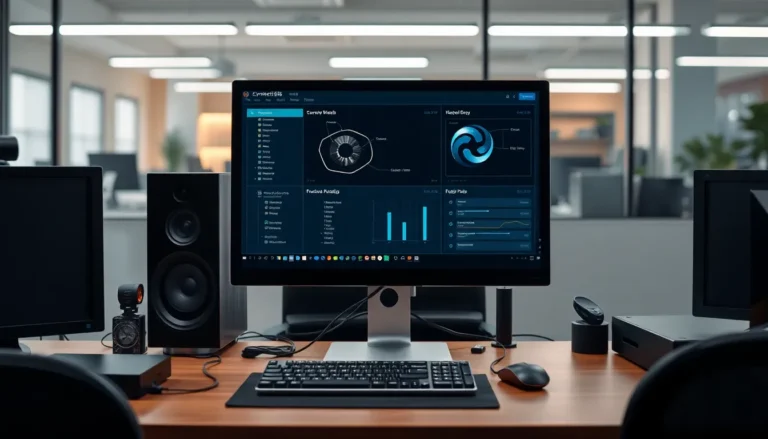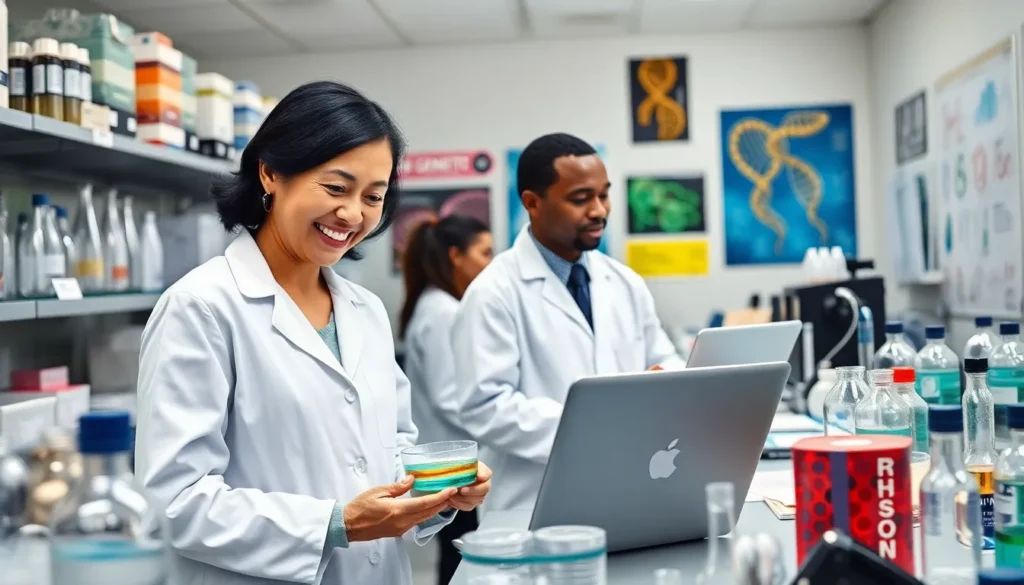Table of Contents
ToggleBoston isn’t just the home of clam chowder and the Red Sox; it’s also the bustling hub of biotech innovation. With a rich history in education and research, this city has transformed into a playground for some of the brightest minds in biotechnology. If you’re looking for groundbreaking advancements in medicine, pharmaceuticals, or genetic research, Boston’s biotech scene is where the magic happens.
From startups with ideas that could make even Einstein raise an eyebrow to established giants pushing the boundaries of science, Boston’s biotech companies are not just changing lives—they’re rewriting the rules of what’s possible. So, grab your lab coat and a cup of coffee as we dive into the fascinating world of biotech companies in Boston, where science meets creativity and a sprinkle of humor. Who knew saving the world could be this much fun?
Overview of Biotech Companies in Boston
Boston ranks as a leading hub for biotech companies, housing over 1,000 firms focused on health solutions and scientific advancements. Industry giants such as Biogen and Vertex Pharmaceuticals drive innovation alongside a robust startup ecosystem. Startups utilize cutting-edge technology to tackle challenges in medicine, including gene therapy and personalized medicine.
Collaboration thrives in Boston’s biotechnology sector, with institutions like Massachusetts Institute of Technology (MIT) and Harvard University playing crucial roles. These academic powerhouses supply talent and foster research partnerships that catalyze groundbreaking discoveries. Research institutions continually attract substantial funding, contributing to a competitive landscape for biotech companies.
The Massachusetts Biotechnology Council highlights the economic impact of the sector, estimating that biotech contributes over $24 billion annually to the state’s economy. Significant investment trends emerge, with venture capital flowing into promising startups, ensuring ongoing growth. Various biotech companies specialize in diverse areas, from drug development to diagnostics, enhancing overall healthcare quality.
Networking events and conferences, such as BIO International Convention, promote collaboration and knowledge sharing among industry professionals. Organizations dedicated to advancing biotechnological research and applications foster an environment ripe for innovation.
Boston’s location offers unique advantages, including proximity to leading hospitals and research facilities, enhancing access to clinical trials and patient data. The regulatory framework in Massachusetts supports biotech development while ensuring safety and efficacy in products. Biotech companies, large and small, continue to shape the future of healthcare through innovative solutions.
Key Players in the Boston Biotech Scene

Boston’s biotech landscape features a blend of established companies and innovative startups that drive the industry forward.
Notable Biotech Firms
Biogen leads the way in neurodegenerative disease treatment, showcasing advanced therapies. Vertex Pharmaceuticals focuses on transformative treatments for cystic fibrosis, reflecting Boston’s commitment to addressing critical health issues. Amgen, while headquartered in California, operates a major facility in Somerville, contributing to the region’s pharmaceutical advancements. Moderna gained international recognition for its COVID-19 vaccine, firmly placing it among Boston’s most prominent biotech firms. These companies exemplify the focus on research-driven solutions, significantly impacting global health.
Emerging Startups
Startups like Homology Medicines emphasize gene editing and its potential to treat genetic disorders. Blueprint Medicines targets genomics-related cancer therapies, showcasing Boston’s emphasis on precision medicine. Gritstone Oncology works on personalized cancer immunotherapies, addressing unique patient needs. Notably, Carmot Therapeutics employs chemistry-driven approaches for drug discovery, reinforcing the innovative spirit within Boston’s biotech ecosystem. Collectively, these startups reflect the dynamic growth and exploration taking place, transforming ideas into impactful health solutions.
Innovations and Research Developments
Boston’s biotech industry thrives on groundbreaking research and technological advancements. The city serves as a global leader, steadily producing innovative solutions that address pressing health challenges.
Cutting-Edge Technologies
Biotechnology companies in Boston excel in leveraging advanced technologies. Techniques such as CRISPR gene editing and next-generation sequencing fuel research initiatives. These methods empower firms to tackle complex diseases like cancer and genetic disorders. For instance, Moderna’s mRNA technology has transformed vaccine development, accelerating responses to global health crises. Robotics and artificial intelligence also play crucial roles in streamlining drug discovery and development processes. The convergence of science and technology positions Boston at the forefront of the biotech revolution.
Collaborations with Universities
Institutions like MIT and Harvard University foster essential collaborations within the biotech sector. Researchers partner with industry professionals, leading to innovative discoveries that benefit public health. Notable programs create pathways for startups and established companies to access cutting-edge research and talent. This synergy results in numerous spin-off companies, driving Boston’s economic growth. Partnerships often extend to clinical research, enhancing the translation of laboratory findings into practical treatments. The collaboration between academia and industry exemplifies Boston’s commitment to advancing biotechnology through shared expertise.
Economic Impact of Biotech in Boston
Boston’s biotechnology sector significantly bolsters the local economy, contributing over $24 billion annually. This substantial economic impact aligns with the city’s position as a leading hub for biotech advancements. Biotech companies support over 100,000 jobs across various fields, from research and development to manufacturing and healthcare.
Investment flows heavily into this thriving ecosystem, with venture capitalists directing billions toward innovative startups. Notable firms like Biogen and Vertex Pharmaceuticals also contribute financially, driving new employment opportunities and innovative solutions. The presence of these industry giants fosters an environment ripe for growth, attracting talent from institutions like MIT and Harvard University.
Collaboration among entities plays a vital role in the biotech landscape. Partnerships between startups and research institutions cultivate breakthroughs in areas such as gene therapy and personalized medicine. Networking events and conferences, such as the BIO International Convention, strengthen connections, enhancing knowledge sharing and accelerating discoveries.
Support from the state government further enhances the sector’s growth. A favorable regulatory framework ensures that biotech products meet safety and efficacy standards, promoting public confidence. Proximity to leading hospitals and research facilities also facilitates access to clinical trials and patient data, essential for product development.
Emerging companies continuously rise, adding to the diversity and innovation within Boston’s biotech scene. Startups such as Homology Medicines and Blueprint Medicines focus on cutting-edge therapies that address unmet medical needs. The economic contributions of these firms elevate Boston’s status, solidifying its role as a premier destination for biotechnology innovation.
Challenges Facing the Biotech Industry
Boston’s biotech industry encounters several challenges that can hinder innovation and progress. High operational costs exert pressure on startups. With expenses related to research, development, and compliance, many companies struggle to secure adequate funding. Regulatory hurdles significantly slow down the approval process for new therapies, often requiring extensive data for safety and efficacy.
Intense competition presents another obstacle. Numerous firms within the Boston area vie for limited venture capital opportunities. As a result, differentiating products becomes crucial for attracting investors. Moreover, skilled workforce shortages can impact productivity. While Boston does benefit from a talented educational system, demand for specialized roles often outpaces supply.
Market access largely influences revenue generation for biotech companies. They must navigate complex reimbursement landscapes to ensure that innovations reach patients effectively. Intellectual property challenges also arise, particularly for startups aiming to protect novel discoveries. Securing patents can be time-consuming and costly.
Collaboration remains essential in overcoming these issues. Companies often seek partnerships within the ecosystem, including academic institutions and larger firms, to share resources and knowledge. Effective communication within this network fosters a unified approach to tackling common challenges while enhancing product development.
Overall, addressing these hurdles is vital for sustaining growth in the Boston biotech sector. Heeding the market dynamics and regulatory landscape enables companies to adapt and innovate in a rapidly evolving industry.
Boston’s biotechnology landscape stands as a testament to innovation and collaboration. With its rich ecosystem of established firms and emerging startups the city continues to lead in addressing some of the most pressing health challenges. The synergy between academia and industry fosters an environment ripe for groundbreaking discoveries while navigating the challenges that come with rapid growth.
As the sector evolves Boston’s commitment to advancing healthcare solutions remains unwavering. The future looks bright for biotech in this vibrant city promising continued advancements that could reshape the medical landscape for years to come.







